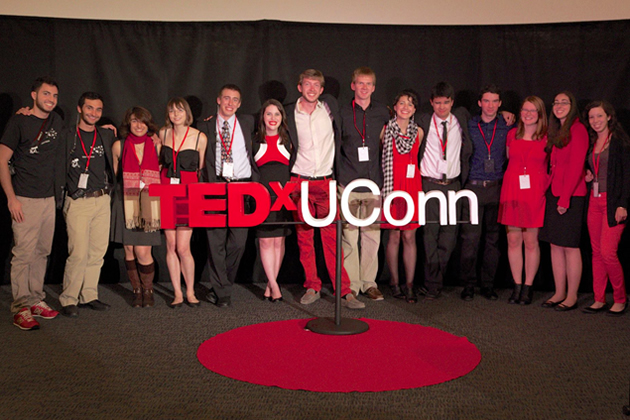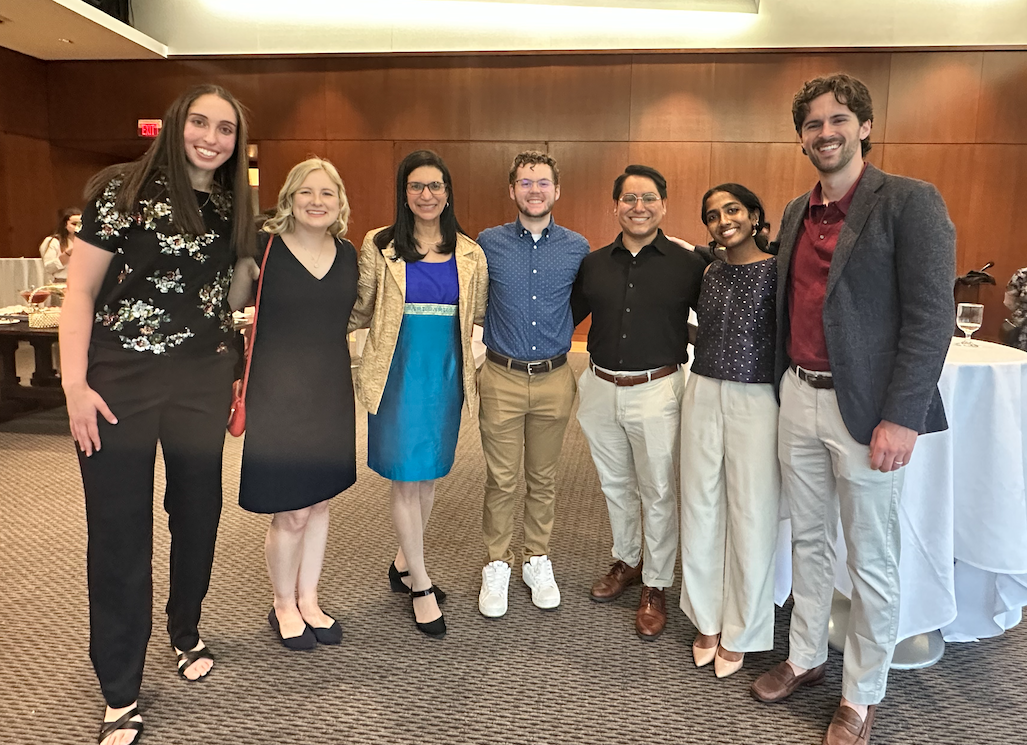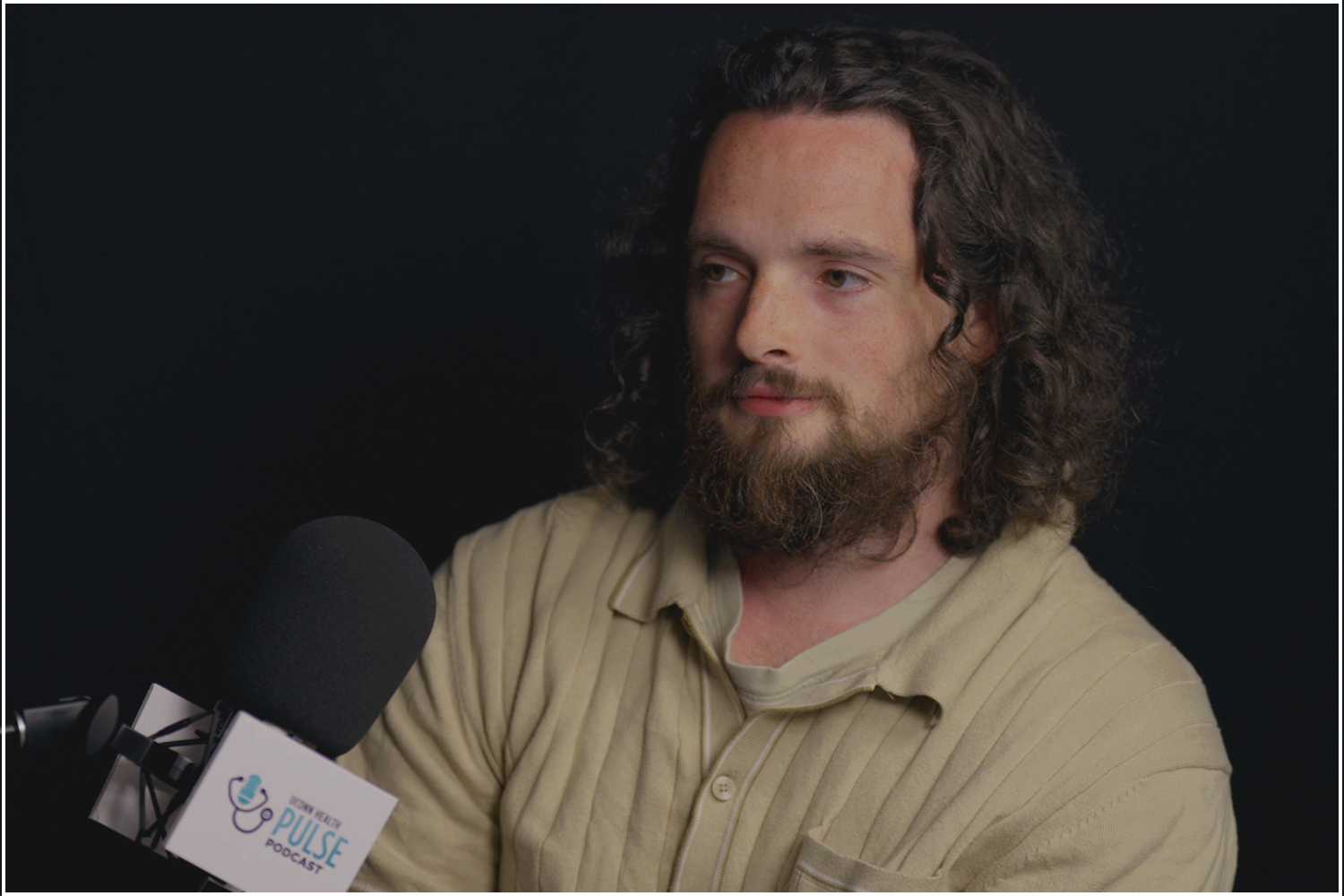
For nearly 30 years, the nonprofit TED has been devoted to “ideas worth spreading.” On Sept. 21, speakers from UConn and elsewhere focused on the future in the first TEDxUConn.
“In terms of UConn’s future, I see UConn definitely moving up in the world,” says David Ritter ’13 (CLAS), ’15 (ENG), president of TEDxUConn. “I think it’s about time UConn has a TEDx conference that puts it on par with places like Yale, NYU, and Brown.”
[TED is] taking what we already know is happening here – this intellectual fervor – and rebranding it so that people can really say, ‘Hey, there’s some good stuff happening here.’
Ritter says UConn is an ideal location for a TEDx event. “We’re in the orbits of Boston, New York, New Haven, and Hartford – some of the major academic and business centers in the country. UConn could really become a meeting place for great minds from these regions, and interdisciplinary events like TEDxUConn that can bring that talent to campus.”

The ‘x’ identifies the conference as an independently organized TED event. This one was organized by UConn students.
“We wanted to showcase UConn’s talent in two ways,” says Rebecca D’Angelo ’14 (CLAS), vice president of marketing for TEDxUConn. “The conference was entirely organized by undergraduates, so it was wonderful to use a professional brand and have that leverage and credibility. The other thing was to use the talent we have on campus, give them the credit and the platform they deserve.”
Ritter, who co-founded TEDxUConn along with vice president of design Tom Benneche ’14 (CLAS) and vice president of technology Dillon Jones ’15 (ENG), says the initial idea for September’s TEDxUConn was to forecast what life would be like in 2023. When that topic seemed too constricting, the team decided on a general discussion of trends and predictions about the future, and set about making it happen.
Soon they had 19 speakers from academia, industry, and medicine eager to give their 18-minute takes on technological, sociocultural, and global trends.
“I was blown away by our speakers. I knew they’d be good, but they were really, really great,” says Ritter. “We got a VP from IBM to come; a CEO from a company to come. Those are connections you usually can’t make every day.”

Connections are important to Ritter. He points out that the focus of TEDxUConn is not just to put on events, “but to build a community around great ideas, to get people interacting, to get relationships between people and ideas.”
D’Angelo says the TED format is a perfect opportunity for sharing ideas. “There’s something that’s so attractive about the TED format,” she says. “I love dialogue, and you don’t generally have the opportunity to formally go up to someone and say, ‘This is a great idea I have.’ [TED] gives you a setting to broadcast that because it’s part of this universal network. … It’s taking what we already know is happening here – this intellectual fervor – and rebranding it so that people can really say, ‘Hey, there’s some good stuff happening here.’”
Speaking of fervor, what’s next for TEDxUConn?
“We have the crazy idea of putting on another one of these events in the spring,” says Ritter. “We would love to have new people involved. All it takes to do something great is to put the time in.”
Would you like to do something great? Send an email to tedxuconn@gmail.com.


